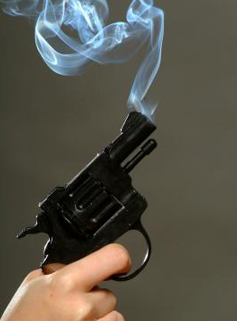eDiscovery Daily Blog
Withheld Evidence Leads to New Trial, Resignation of Senior City Attorney: eDiscovery Case Law

This seems to be our week for verdicts being set aside due to alleged discovery violations by parties involved in the case or by the attorney representing those parties. Thanks to Connie Scorza for the tip about this case!
In Colyer v. City of Chicago, No. 12 C 04855 (N.D. Ill., Jan 4, 2016), Illinois District Judge Edmond E. Chang granted in part the plaintiff’s post trial motion, denying the plaintiffs’ request for a directed verdict, but granting their request for a new trial after it was discovered that the defendants’ attorney had “intentionally” withheld the recording of a police dispatcher’s description of a possible suspect that was key in determining whether Chicago police officers acted with excessive force in killing a suspect in a traffic stop. The plaintiffs also were awarded their attorneys’ fees and costs expended on preparing for the first trial, conducting the trial itself, and conducting the post-trial discovery and briefing.
Case Background
On January 7, 2011, Chicago Police Officers Raoul Mosqueda and Gildardo Sierra pulled over an Oldsmobile Aurora in Chicago’s Englewood neighborhood driven by Darius Pinex. The officers stated that they decided to stop the car because they thought it matched the description of an Aurora that other officers had unsuccessfully tried to pull over earlier that night. Mosqueda claimed he heard the description of the Aurora over his police-car radio from a dispatcher in the Office of Emergency Management and Communications (OEMC). Mosqueda claimed during the litigation that the OEMC call warned that the Aurora was wanted for a shooting or that there might have been a gun in the car. During the resulting confrontation (the details of which were disputed by the parties involved), Pinex was killed. Nine months later, Pinex’s estate filed suit against Mosqueda, Sierra and the City of Chicago, alleging excessive force in violation of the Fourth Amendment.
During the case, the plaintiffs asked for the recording of what Mosqueda claimed to have heard over the radio, as well as any documents related to the recording, but the discovery responses that they did get led them to believe that no recording of the call or documents were available. From that, the plaintiffs reasonably concluded that Mosqueda was lying, had actually heard nothing, and the officers executed an overly aggressive traffic stop, so they prepared their case accordingly.
However, on the fourth day of trial, it was revealed that there was an OEMC record showing the potential availability of a recording of the call the officers heard that night, and soon afterwards, it was revealed that the recording was in fact still available, which did not mention that the Aurora had a gun or that the car was wanted for a shooting. The plaintiffs’ counsel had to adjust their trial presentation strategy to account for the existence of the recording, but, ultimately, the jury found in favor of the defendants. Because the recording wasn’t made available earlier, the plaintiffs moved for a directed verdict in their favor or, short of that, a new trial along with attorneys’ fees and costs.
Judge’s Ruling
In order to determine the extent of the discovery violation and the propriety of the relief sought, the Court authorized post-trial discovery. As Judge Chang stated after the post-trial discovery was conducted:
“That discovery has shown two things. First, it has shown that Jordan Marsh, one of the City Law Department lawyers representing the officers and the City of Chicago, learned about the OEMC record before trial and knew that the recording might still be available. The Court has no choice but to conclude, based on the record evidence, that Marsh intentionally withheld this information from the Court, from Plaintiffs, and even from his own co-counsel. Second, post-trial discovery has shown that, in response to Plaintiffs’ discovery request seeking the recording and related documents, Thomas Aumann, another Law Department lawyer for the officers and the City of Chicago, failed to make a reasonable inquiry, as required by the discovery rules, to search for the recording and responsive documents. Aumann only looked for documents in a Law Department file, but he had no idea how the documents in the file were gathered, from what sources, or even who gathered them.”
Regarding Marsh’s “misconduct”, Judge Chang noted that “the Court has no choice but to conclude that Jordan Marsh intentionally concealed from Plaintiffs and from the Court the existence of the OEMC record memorializing that Maderak had sent Sergeant Lamperis CDs containing the Zone 6 Audio. After hiding that information, despite there being numerous times when the circumstances dictated he say something about it, Marsh said nothing and even made misleading statements to the Court when the issue arose. This misconduct justifies a new trial and attorneys’ fees and costs from February 19, 2015—the date that he learned of the OEMC record and the Zone 6 Audio’s potential availability—through the post-trial discovery and briefing.”
After Judge Chang’s ruling, Marsh resigned from his position later that day.
So, what do you think? Should an attorney who intentionally withholds evidence in discovery be disbarred for that action? Please share any comments you might have or if you’d like to know more about a particular topic.
Disclaimer: The views represented herein are exclusively the views of the author, and do not necessarily represent the views held by CloudNine. eDiscovery Daily is made available by CloudNine solely for educational purposes to provide general information about general eDiscovery principles and not to provide specific legal advice applicable to any particular circumstance. eDiscovery Daily should not be used as a substitute for competent legal advice from a lawyer you have retained and who has agreed to represent you.
